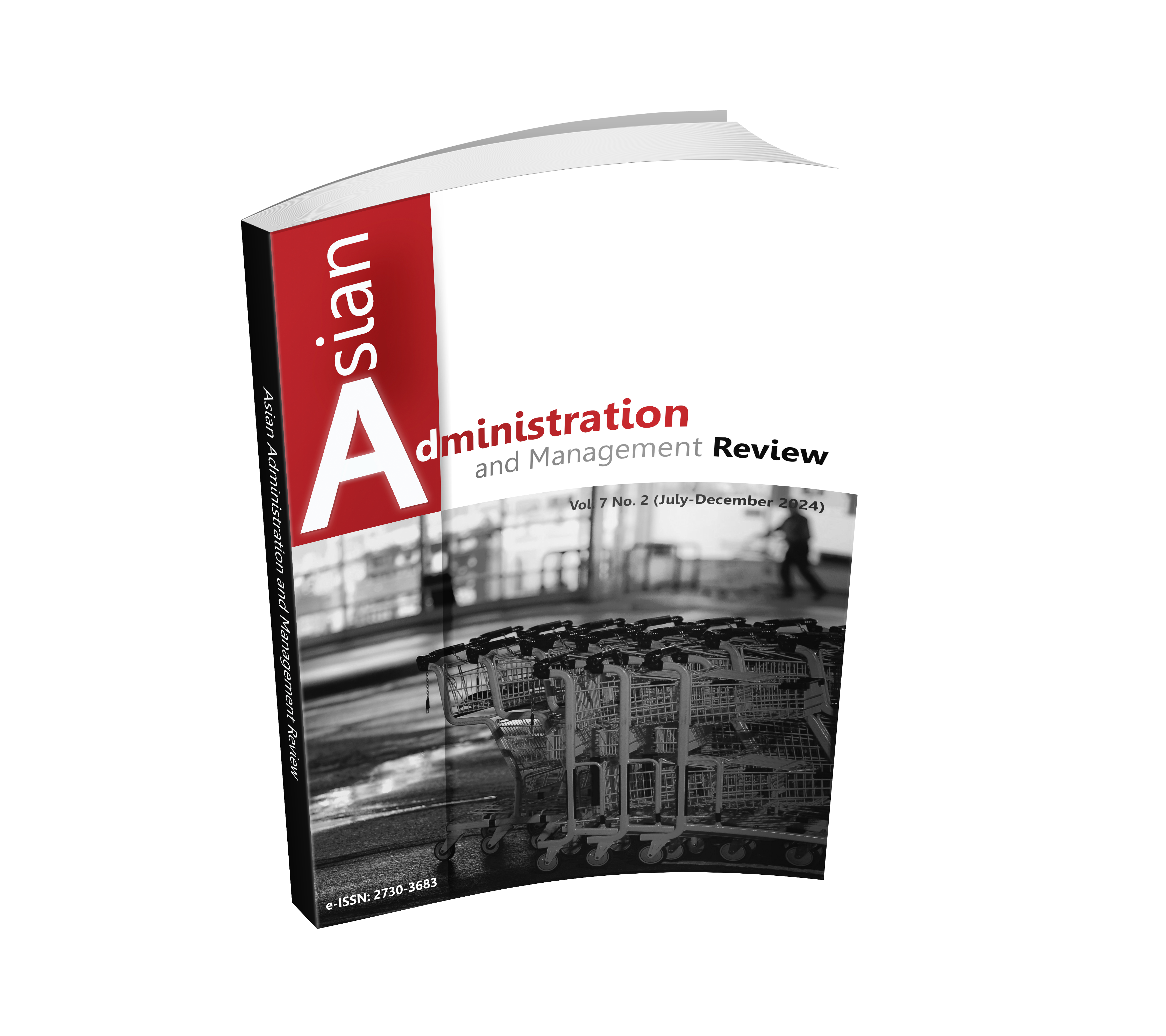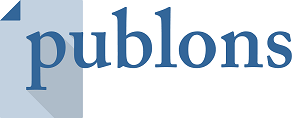UNVEILING PROFESSIONAL MISCONDUCT IN THE INDIAN HOTEL INDUSTRY: AN EMPIRICAL STUDY ON EMPLOYEE TREATMENT AND ORGANIZATIONAL CULTURE
DOI:
https://doi.org/10.14456/aamr.2024.40Keywords:
Slavery, Misconduct, Supervisors, Authority, WorkloadAbstract
This research paper aims to unveil the prevalence and dynamics of modern slavery in the Indian hotel industry, particularly focusing on the professional conduct of superiors towards their subordinates. Drawing on qualitative and quantitative data collected from employees across various star hotels in India, this study delves into the dimensions of transforming the nature of the organization, perceived rudeness, and its impact on employee effectiveness, and psychological capital. Through rigorous analysis, the research uncovers the nuanced experiences of hotel staff, illuminating the widespread presence of professional misconduct and its impact on employee well-being and organizational culture. Findings reveal significant variations in perceptions of Dehumanization within organizations and the perception of rudeness among employees, underscoring the need for targeted interventions to address interpersonal dynamics and foster a respectful work environment. Moreover, insights into employee performance and psychological capital highlight the importance of nurturing positive workplace attributes to enhance resilience and productivity. This research contributes to the broader discourse on modern slavery and professional misconduct in the hospitality sector, providing valuable insights for policymakers, industry stakeholders, and organizational leaders. By uncovering the hidden realities of the Indian hotel industry, this study catalyzes meaningful change, advocating for ethical practices and dignity in the workplace.
Downloads
References
Asongwe, J. (2023). The Causes and Impacts of Employee Gross Misconduct. Retrieved from www.researchgate.net/publication/376133775_THE_CAUSES_AND_IMPACTS_OF_EMPLOYEE_GROSS_MISCONDUCT.
Bales, K. (1999). Disposable People: New Slavery in the Global Economy. California: University of California Press.
Boateng, F., & Hsieh, M. (2019). Misconduct Within the “Four Walls”: Does Organizational Justice Matter in Explaining Prison Officers’ Misconduct and Job Stress?. International Journal of Offender Therapy and Comparative Criminology, 63(2), 289-308.
Business & Human Rights Resource Centre. (2019). Modern Slavery in the Global Hotel Sector: New Report. Retrieved from www.business-humanrights.org/en/from-us/briefings/modern-slavery-in-the-global-hotel-sector-new-report/.
Dal-Re, R., & Marušić, A. (2024). The definition of research misconduct should be stated in the abstract when reporting research on research misconduct. Accountability in Research, 1-9. https://doi.org/10.1080/08989621.2024.2306538.
Dato, R. (2024). How Internships Influenced Professional Development? Hotel and Restaurant Management Graduate Perspectives. International Journal of Social Science and Human Research, 7(5), 3391-3396.
Davis, B., Read, D., & Powell, S. (2014). Exploring Employee Misconduct in the Workplace: Individual, Organizational, and Opportunity Factors. Retrieved from https://ssrn.com/abstract=3526360.
Dwivedi, R. (2019). Human Trafficking in Hotels and Restaurants in India. Retrieved from www.linkedin.com/pulse/human-trafficking-hotels-restaurants-india-rakesh-dwivedi/.
Ekong, E., & Thomas, E. (2019). Teachers’ Professional Misconduct and Evaluation of Students’ Performance in Secondary Schools in Akwa Ibom State. Education for Today, 15(1), 111-115.
Fitzgerald, T. (1989). Commission of inquiry into possible illegal activities and associated police misconduct. Retrieved from https://apo.org.au/node/56699.
Ghobadi, A., Sayadi, L., Nayeri, N., Shabestari, A., Varaei, S. (2024). The nurses’ perception of the factors influencing professional misconduct: A qualitative study. Nursing Ethics, 31(2-3), 281-295.
Gillard, E., Chen, M., & Lv, W. (2018). Procedural corruption in the North American hotel industry. International Journal of Hospitality Management, 72, 154-167.
Goh, E., & Kong, S. (2018). Theft in the hotel workplace: Exploring frontline employees’ perceptions towards hotel employee theft. Tourism and Hospitality Research, 18(4), 442-455.
Guler, E., & Yukselen, C. (2010). Hotel employees’ beliefs on unethical behavior. Social Responsibility Journal, 6(2), 252-267.
Jayaraj, B. (2014). To Analyze the Quality of Front Line Managers Leadership Skills in Relation with Training and Development in the Indian Hotel Industry (Case Study-Itc Grand Chola Hotel). Master of Science Thesis, Dublin Business School.
Kaynak, E., & Rahman, H. (2024). “It Takes More Than a Pill to Kill”: Bounded Accountability in Disciplining Professional Misconduct Despite Heightened Transparency. Organization Science, 1-31. https://doi.org/10.1287/orsc.2023.17932.
Kotani, J., Takyi, S., Asibey, M., Amponsah, O., Quagraine, V., & Liwur, S. (2024). Planning in Ghana: analysis of the various forms of professional misconduct from the perspective of professional planners. Planning Practice & Research, 39(4), 683-702.
Lee, L., & Tsang, N. (2013). Perceptions of Tourism and Hotel Management Students on Ethics in the Workplace. Journal of Teaching in Travel & Tourism, 13(3), 228-250.
Lim, W., Srivastava, S., Jain, A., Malik, N., & Gupta, S. (2023). When employees feel betrayed: The mediating role of psychological contract violation on nepotism and workplace commitment in the hotel industry. International Journal of Hospitality Management, 108, 103381.
McFarland, D. (1989). Professional Misconduct—A New Morality. Northern Ireland Legal Quarterly, 40, 34-42.
Miao, Y., Chen, M., Su, C., & Chen, C. (2021). Philanthropic giving of China’s hotel firms: The roles of state ownership, corporate misconduct and executive remuneration. International Journal of Hospitality Management, 95, 102897.
Молдажанов, М., Баяндин, М., Арынова, З., Куанткан, Б., & Викторовна, Д. (2022). Methodological Approaches to Modeling the Innovative Development of Hotel Organizations. Научный Журнал «Вестник НАН РК», 6, Article 6.
Moyo, S. (2017). Professional Misconduct or a Good Faith Exercise of Judgment?. Education & Law Journal, 26(2), 247-254.
Nanda, H. (2023). Professional Misconduct & Feeble Underpinning of Government Departments in India. RESEARCH REVIEW International Journal of Multidisciplinary, 8(9), 33-37.
Ndiuini, A., & Baum, T. (2021). Underemployment and lived experiences of migrant workers in the hotel industry: Policy and industry implications. Journal of Policy Research in Tourism, Leisure and Events, 13(1), 36-58.
Nguyen, P., & Truong, G. (2021). Employee Theft Behavior: A Case Study of Five-Star Hotels in Vietnam. International Journal of Asian Business and Information Management, 12(3), 1-20.
Ouchi, W., & Wilkins, A. (1985). Organizational Culture. Annual Review of Sociology, 11, 457-483.
Paraskevas, A. (2020). Human trafficking and modern slavery in Europe’s hotels. In C. Lashley. (ed.). Slavery and Liberation in Hotels, Restaurants and Bars (pp. 1-17). London: Routledge.
Plant, R. (2014). Modern slavery: the concepts and their practical implications. Geneva: ILO.
Rao, K., Mair, M., Arora, R., Dange, P., & Nagarkar, N. (2024). Misconducts in research and methods to uphold research integrity. Indian Journal of Cancer, 61(2), 354-359.
Robina-Ramírez, R., Sánchez-Hernández, M., & Díaz-Caro, C. (2021). Hotel manager perceptions about corporate compliance in the tourism industry: an empirical regional case study in Spain. Journal of Management and Governance, 25, 627-654.
Sarwar, A., & Muhammad, L. (2021). Impact of organizational mistreatment on employee performance in the hotel industry. International Journal of Contemporary Hospitality Management, 33(2), 513-533.
Selinger, C., & Schoen, R. (1965). To Purify the Bar: A Constitutional Approach to Non-Professional Misconduct. Retrieved from https://heinonline.org/HOL/LandingPage?handle=hein.journals/narj5&div=21&id=&page=.
Teng, C., & Cheng, S. (2021). Hospitality Ethics: Perspectives from Hotel Practitioners and Intern Students. Journal of Hospitality & Tourism Education, 33(2), 99-110.
Tewari, S., & Arya, A. (2023). Analyzing the efficiency of the Indian hotel industry using the Malmquist DEA approach. Benchmarking: An International Journal, https://doi.org/10.1108/BIJ-05-2022-0286.
Varaei, S., Nayeri, N., Sayadi, L., Shahmari, M., & Ghobadi, A. (2024). Outcomes of professional misconduct by nurses: a qualitative study. BMC Nursing, 23, 200.
Yadav, S. (2021). Millennial Employees-Role, Benefits and Retaining Strategies in Hotel Industry. Retrieved from https://doi.org/10.6084/m9.figshare.13719949.v1.
Yadav, S. (2024). Voices from within: Exploring Indian Perspectives on Sex Tourism. In P. Tyagi, V. Nadda, K. Kankaew, & K. Dube. (eds.). Examining Tourist Behaviors and Community Involvement in Destination Rejuvenation (pp. 263-272). Pennsylvania: IGI Global.

Downloads
Published
How to Cite
Issue
Section
License
Copyright (c) 2024 Authors

This work is licensed under a Creative Commons Attribution-NonCommercial-NoDerivatives 4.0 International License.











.png)


